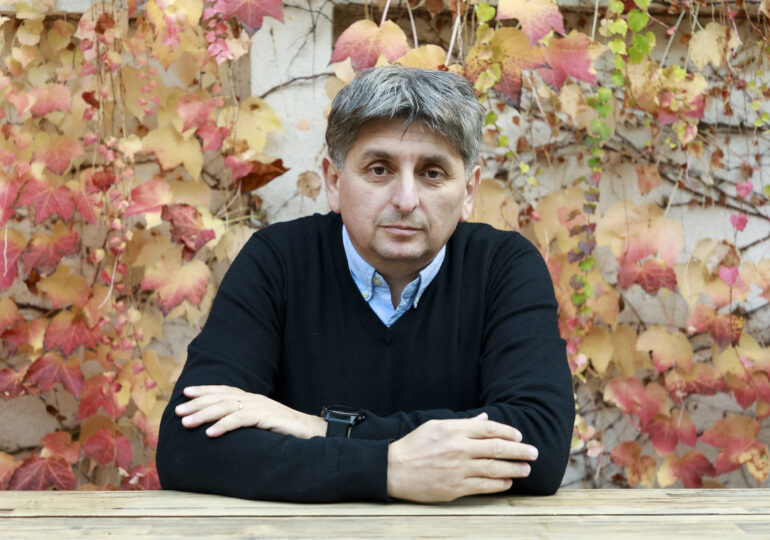For the first time since 1990, Romania engages in a direct confrontation with Russia, destroying the intelligence networks reactivated and developed with Ion Iliescu coming to power at the end of 1989.
The fact that an influence agent supported and promoted by the Kremlin was very close to winning the country’s presidency, following one of the most powerful illegal campaigns conducted in Europe, represented a good reason for reaction, yet it is hard to shake off the feeling that for years those whose objective was to protect the country stood idly by.
No one knows how long and how the confrontation with the Kremlin will end, but for the first time, Romania’s representatives are choosing not to look the other way, pretending not to see how Moscow’s envoys are trampling through the country.
In the Romanian Parliament, all three extremist parties, in one form or another, have connections to Russia, openly promoting the interests of a mafia-like and dictatorial regime that declared Romania an enemy state.
For example, just last week, AUR, SOS, and POT parliamentarians, after voting against the "drone law," which was adopted by the parliamentary majority, challenged it at the Constitutional Court, thus delaying its enforcement.
Due to funding from Russia and the support they received from the Kremlin, leaders of extremist groups were able to scream and spread "patriotic" messages on social networks while executing the Kremlin's agenda, encouraging language violence, physical violence, anti-Semitism, and Legionarism.
Romania, in two boats
The spiral of Russian interventionism occurred due to an incomprehensible policy adopted by all democratic parties after 1990, which preferred to support a "schizophrenic" diplomacy, such as "let's move towards the West because that's what the people want, but let's not upset Moscow too much."
But Moscow got upset every time. It did everything possible to delay Romania's NATO accession, integration into the European Union, to hinder economic development and institutional reform.
Moreover, it infiltrated political parties, institutions, encouraged corruption and stagnation, eroding public trust in democracy, freedom, and the future more and more.
The pandemic and the war in Ukraine accelerated Russia's hybrid attack, taking advantage of the health crisis, people's fear of the unknown, and a president overwhelmed by the situation, interested solely in his own comfort.
It remains insufficiently explored territory the fact that state institutions have started to act against hostile operations launched by the Kremlin only after Klaus Iohannis's resignation from Cotroceni Palace, even though the crisis generated by the "Georgescu" operation was in full swing.
In the attempt to "dismantle" Russia's influence networks, it inevitably led to the groups of military reservists, who have been distribution hubs for Kremlin's messages in Romanian society for years.
Has Russia achieved its goal?
What we see today with "Getia," "Council of the Wise," and "Council of the Elders" is just one of the cells supported by Russia, organized around a "symbolic character," following a scenario most likely produced by Putin's intelligence agencies.
...starting in 2023, five of the defendants, together with one suspect, formed an organized criminal group with the purpose of undermining the sovereignty and independence of the Romanian state through political subversion and undermining the country's defense capabilities.
Prosecutors' report on the extremist group Vlad Țepeș Command
Multiply such a structure by a hundred, and you will have a clearer picture of the planned and executed hybrid attack by Moscow, an attack that has changed the atmosphere in the country, power relations in society, and relationships between people, causing a major political crisis.
Victories and defeats in such a confrontation cannot be immediately quantified. Some commentators say that Russia has achieved its goal - populating 30% of Parliament with anti-European Union and NATO politicians who have aligned with the "extremism" promoted by Donald Trump and the MAGA movement in the USA.
It is hard to argue against such a statement. Nowadays, Western democracies are effectively fighting for survival, caught in a vice between American extremism and Russian imperialism.
On the other hand, better late than never. The rupture in how Romania relates to Moscow comes at a good time, considering the high level of destruction of the Kremlin's army, caused by Ukraine and the economic situation in Russia.
Propaganda, the sustenance that keeps dictatorship alive
Putin's strength relies on two elements: nuclear weapons and propaganda.
No democratic state can develop such a system of spreading false information, hybrid operations, and political interference because it cannot allocate such large funds for something that has no impact on citizens' quality of life. Democratic political regimes prefer to invest taxpayers' money in solving concrete problems visible to voters that improve their lives.
A dictatorship is not interested in elections because it steals them and not in voters because there is no political competition, thus, authoritarian political regimes have huge funds at their disposal to finance political propaganda, interferences, and hybrid conflicts.
It is not clear how far the investigations of the Romanian prosecutors will go. Will they reach the leaders of extremist parties, their financiers? Will other influence networks be dismantled? Will there be a reform of the intelligence services, some of which have been compromised by Russia's actions?
We will see, but it is certain that for the first time in the last five years, there is a decrease in the intensity of troll and bot campaigns on social networks in society, a withdrawal of Russian influence agents from the scene, and a tempering of radical messages encouraged on all communication channels.
Treason is a crime punishable by heavy prison sentences, and if finally, the alarm has sounded at the societal level, it will quickly become apparent that many of those who were shouting "Long live Romania!" were in reality the biggest traitors.

